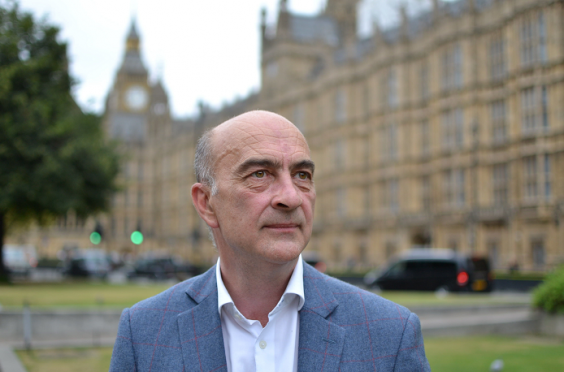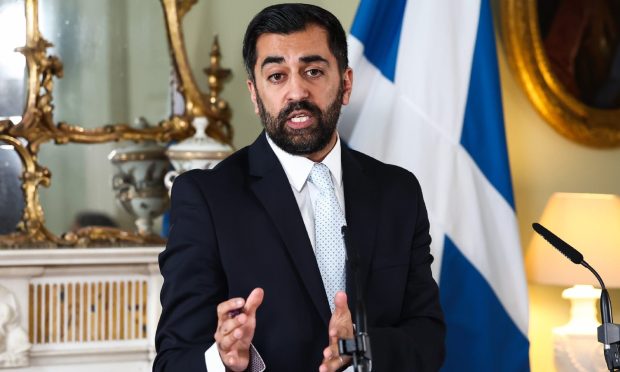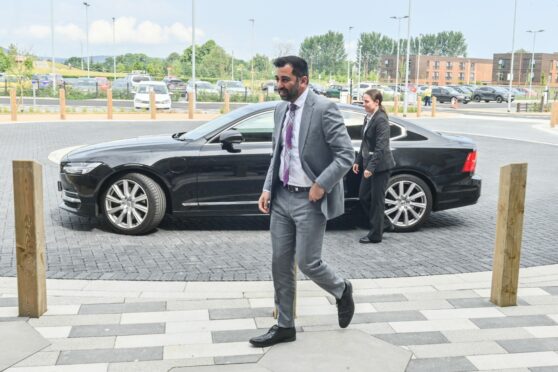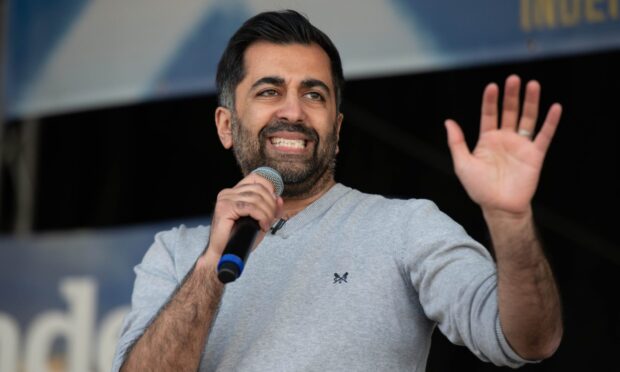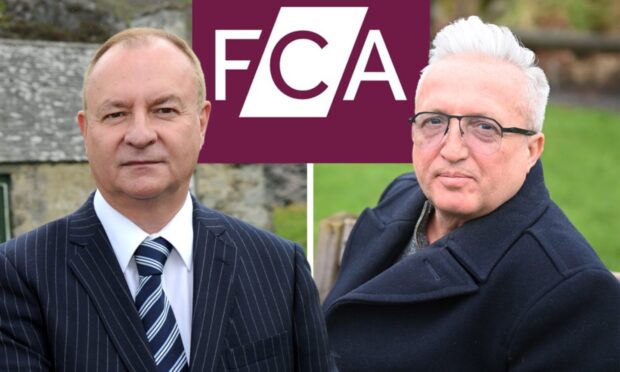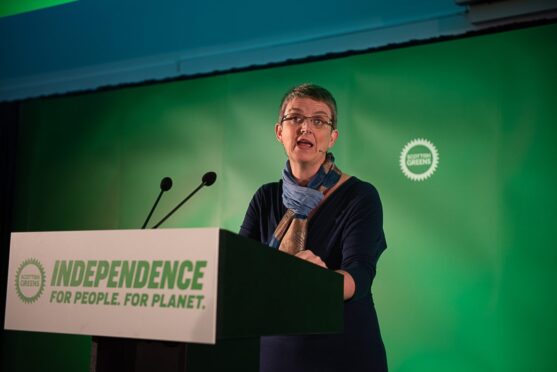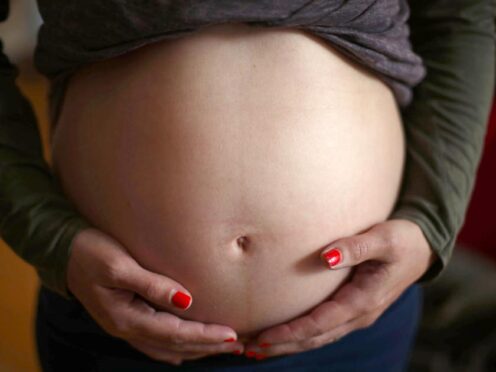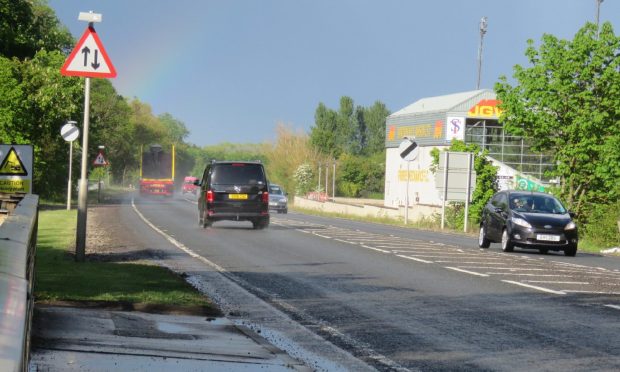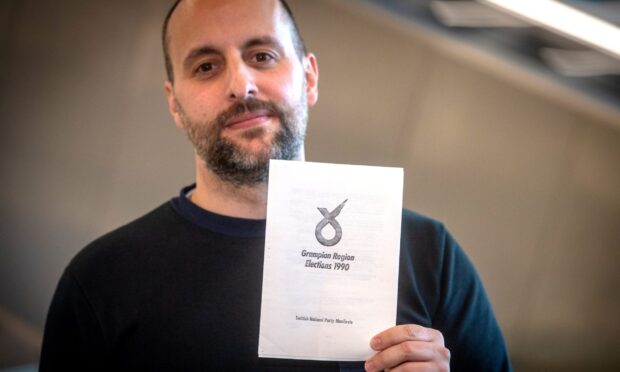It’s not so long ago that cricket Test matches around the world were officiated by umpires from the host country.
Hence the reason the likes of Dickie Bird rose to fame. He of the flat cap, flat vowels and flat refusal to be swayed by the sledging of the cricketers.
He was the umpires’ umpire and beyond reproach for his fairness.
If you were leg before, you were leg before, regardless of whether you wore three lions on your cap.
In a previous life I was the political editor for a regional radio station and covered the first elections to the brand new Scottish Parliament.
As a broadcaster you are, like an umpire in cricket or a football referee, under an obligation to be neutral.
Indeed, I know of two very senior broadcasters, still on air, who have well documented party affiliations in their past but who are beyond reproach as TV journalists.
They do, as I did, provide balance and report without fear or favour, asking the tough questions and probing for answers from all politicians. I hid (as they do) my own political leanings under a cloak of professional impartiality.
Did I always get it spot on? Was I sometimes tougher or softer on some more than others?
Probably. But only occasionally. And to all, not just to some.
Indeed, when I left to become the director of communications for the Scottish Conservatives, the comment I got most often was one of surprise.
Partly that anyone could be a Tory in Scotland (changed days indeed) but mainly that my political preference hadn’t been evident when I had been a radio journalist.
I wore that as a badge of pride in a job well done.
It is a badge that, in my experience, the vast majority of TV and radio hacks can also wear with equal pride.
And it is a badge which we, the viewers and listeners, should value. We have local and national broadcasters, not state propagandists.
During my time at No 10, my Downing Street years, I came to appreciate even more the role which broadcasters play in our daily political discourse.
Yes, there were days when we took exception to how a report was presented, or an interview conducted. But I know that all the other parties cried foul at different times too.
We don’t live in a perfect world but if I had a problem with a journalist I would have a quiet word. I found that the telephone was much more effective than the megaphone.
I took the view, and I still do, that errors are usually a case of cock-up, not conspiracy.
So it gets my goat when any political movement tries to bully our broadcasters into a narrow, partisan, blinkered and bigoted view of current affairs.
My hackles are up whenever I see the jackboot cyber army taking to the keyboards just because their own world view has been challenged or pet politicians have been asked a difficult question. Or sometimes even an easy one.
I am left incredulous when MPs and their useful idiots on social media can’t even stomach a journalist asking for clarification about a tweet.
Such was the reaction to the BBC’s James Cook asking the SNP’s Paul Monaghan why he thought it was “regrettable that the United States had expelled 35 Russian diplomats” and whether that line was official SNP policy?
It was a simple question. It was a reasonable question. But daring to probe unleashed a torrent of vile bile and abuse.
And sadly, it was not an isolated incident.
There is a section of Scottish society, a small but vociferous one, who think that they always know best and that anyone who doesn’t cow-tow to their world view must be silenced.
Who think that their own always get tackled hard and everyone else gets a free kick.
And thus the BBC has become the target of their misguided social media thuggery.
Why the BBC? No doubt because of what the first “B” stands for. Indeed, the target tends to be the BBC. Less often BBC Scotland.
It is a canker not condemned often enough or publicly enough by our elected leaders.
Some even give it tacit approval as it fits their aims of stoking grudge, gripe and grievance. And of media manipulation.
They gloss over the irony of willingly appearing on Russia Today or Sputnik Radio, neither of whom have any pretence of impartiality, and aim both barrels at the BBC instead.
The situation wasn’t helped by the new boss of BBC Scotland saying they had to do better to combat perceptions of partiality.
No, you just have to keep on doing what you do.
Living up to your duty and backing James Cook and Brian Taylor and Glenn Campbell and all of your team. And Andrew Neill and Laura Kuenssberg too.
So my journalistic hope for 2017 is that Auntie Beeb holds firm.
That she rises above the fray, ignores the vitriol whilst listening to reason.
That she recognises occasional error but resists all attempts at being bullied. That the BBC remains the nation’s broadcaster, not the Nationalists’ mouthpiece.
That she, like Dickie Bird, can umpire with impartiality and allow politicians from all parties to face the bouncers they all deserve.
A very happy new year to you all.
